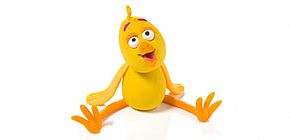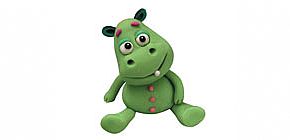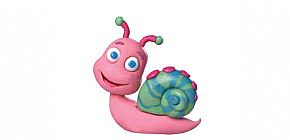The Teething Phenomenon - When to Head to the Doctor
.jpg) |
|
Does your infant have a fever? Are they irritable and without an appetite? Do they suffer from a diaper rash and lack of sleep? All these symptoms could be linked to teething, but they might not be. Here’s a complete guide to distinguishing normal teething in infants, from illnesses that require medical examination.
Between the ages of 6 months and 2 years, many infants suffer from the side-effects of teething, which can include: pain, a decrease in appetite, liquidy excretions and sleep disturbances. Many false beliefs and myths surround these symptoms and their potential link to teething, which sometimes lead to confusion. Which are normal side-effects of teething and which indicate a virus or other illness? Which side-effects need medical examination, and which don’t?
We’ve prepared a guide to help you, parents, who spend whole nights awake as a result of teething. The guide will help you distinguish between normal teething side-effects, and situations requiring a doctor’s visit.
Pain
Infant teething is often accompanied by gum pain that causes general discomfort, a decrease in appetite and sleep disturbances. Teething pain lasts roughly three days prior to any new tooth’s emergence, and infants experience significant relief from pain-relieving medications, such as Tiptipot Novimol (CTS), which is designed for use in infants from birth, including for teething pain. If your infant suffers from pain for a lengthy period of time, or if the pain-relieving medication does not succeed in improving their state, it is recommended to take your little one to the doctor, to rule out other causes.
Fever
During the teething process, redness and a slight infection can appear at the site of the eruption, causing a low fever. A fever that stems from teething will not exceed 38.5 degrees and will not last for longer than a day at a time. If your infant spikes a high fever or a fever that lasts longer than 24 hours, a medical examination is recommended.
Diarrhea
During the infant teething process, an infant’s bowel movements can become more acidic and liquidy than usual, but not watery or mucousy, which can cause pain and irritation to the anus. If your infant has watery or mucousy stool that is excreted more often than usual, it is unlikely a normal side-effect of teething, but rather diarrhea caused by a virus or bacteria. In such a case, it is recommended to take your child to the doctor for a checkup.
Teething delays
For most infants, the teething process begins at around 6 months of age, but if your one-year-old is still toothless, it’s still no cause for concern. It is recommended to take your child for a medical examination only if they have yet to sprout a single tooth at 18 months old.
Eruption of a tooth that is not white
If a new tooth erupts and is not white, but rather yellow or black, or if the tooth is stained or splotchy, this can indicate the presence of various types of bacteria in the mouth or body - and must be treated at once. As such, any cause of a “non-white” tooth emerging should be seen by a pediatrician or pediatric dentist.
Significant changes to the infant’s routine
If your infant experiences a significant decrease in appetite over a number of days, or general discomfort that persists for longer than three days, if their normal behavior has changed and worries you, it’s a good idea to take your little one to the doctor, to rule out medical conditions other than teething.
How to relieve regular side-effects of teething
-
Present your infant with teethers (chilled ones are recommended), and be sure to thoroughly clean them in between uses, to prevent bacteria from entering the infant’s mouth.
-
Gently massage the infant’s gums in circular motions, with clean hands.
-
For infants already eating solids, serve cool and soft foods, such as fruits, vegetables, dairy products, pasta, etc. Avoid hot and spiced foods.
-
Note: avoid teething gels that contain an anesthetic such as lidocaine, or those containing sugar or alcohol, as they can harm your infant’s health, as well as the health of the emerging tooth
Many infants suffer from runny noses in the days before a new tooth erupts, but studies show that there is no real connection between the two. So why ...
Like the first smile, steps and other wondrous moments, teething will accompany your little one’s first year, only with less pleasure. Many infants ...
In light of the development of several myths surrounding teething, including the “link” between teething and fever in infants, diarrhea, runny noses ...


.jpg)
.jpg)
.jpg)
.jpg)



.jpg)
.jpg)
.jpg)
.jpg)

.jpg)


.jpg)
.jpg)
.jpg)
Contact us